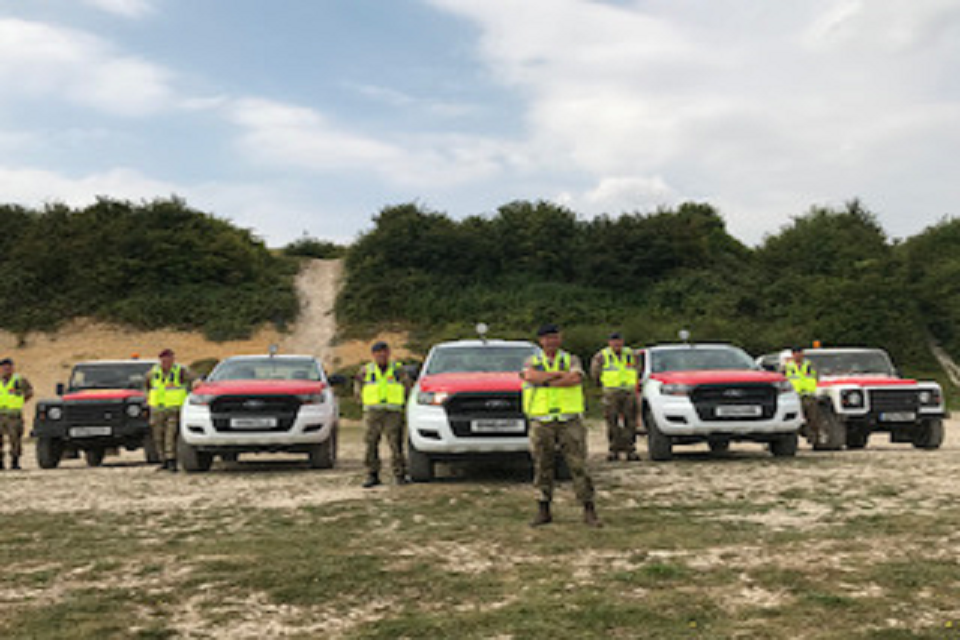News story: British prosperity relies on defence according to independent review
The review was commissioned by the Defence Secretary Gavin Williamson after he launched the Modernising Defence Programme (MDP) to strengthen the Armed Forces in the face of intensifying threats, alongside the Prime Minister and the Chancellor.
The independent review of defence’s contribution to national economic and social value by Philip Dunne looks right across the Armed Forces and industry to provide an in-depth picture to inform proposals for reform into the MDP.
Defence Secretary Gavin Williamson said:
Philip Dunne’s review shows how vital defence is, not only protecting us from global dangers and safeguarding our national prosperity, but also to our economy by creating thousands of specialist and highly-skilled jobs and creating billions in exports.
He paints a clear picture of how defence and defence industry reaches every corner of the UK and is central to employment in so many cities and towns.
He lays down some key challenges to consider as our Modernising Defence Programme continues to ensure defence is the best it can be in a post-Brexit Britain.
The report also includes a number of recommendations for review, including: further research into the impact of significant procurements on national prosperity; building on the strong relationships with industry suppliers; and considering how the UK’s world-leading institutions could be given greater entrepreneurial freedoms.
Philip Dunne said:
I am pleased to have been able to undertake this review and am grateful for the help of all those in and outside the Department who have contributed.
This is the first time for some years that an independent report has sought to look at the whole impact of Defence on the UK economy, its devolved nations and regions in England.
Defence has made a number of important steps in meeting its prosperity objective. It makes a major contribution to our economic well-being, with 500,000 people working directly and indirectly in Defence and over 25,500 apprentices developing skills. In several local communities Defence is one of the leading providers of high skilled jobs.
But there is more that can be done as Defence has to adapt to rapidly evolving technological threats, so too should it seize the opportunities to adapt and improve its own processes to help meet the challenges of the high-tech defence future.
I look forward to seeing how the MOD responds to this report and have confirmed to the Defence Secretary that I am willing to revisit in some months’ time how the Department has considered and where it has decided to implement these ideas.
Defence makes a huge contribution across all regions of the UK whether as a major employer, a large investor or as a hub for local communities. Defence is the third largest landowner in the country with 220,000 hectares often benefiting remote and rural communities.
The report reveals that around 500,000 people support defence across the UK. It outlines that the UK’s defence industry is one of the world’s strongest with an annual turnover of £22 billion supporting 260,000 jobs, many of which are highly skilled and well-paid. Most importantly, he acknowledges that defence is a major contributor to the nation’s skills and one of the largest employer of apprentices with over 25,500 currently enrolled.
Dunne also acknowledges that, in addition to the MOD budget of almost £37 billion, defence’s direct contribution to GDP features over £7 billion of exports generated each year on average. Just recently a shipbuilding contract worth up to £20 billion was signed between BAE Systems and the Australian government for British-designed Type 26 frigates – the biggest Naval defence contract for a decade.
Defence’s relationship as a customer and industrial partner with many high growth sectors in the economy generates more activity, particularly in the aerospace, space, cyber, and increasingly the knowledge economy and creative sectors.
Defence is also driving investment in British industry through the National Shipbuilding Strategy, which was launched last year to transform the UK maritime industry and boost the prosperity of regions, shipyards and maritime supply chains across the country. The MOD is also set to launch a Combat Air Strategy to ensure Britain maintains a world-leading combat air capability.
The MOD will now consider the findings of Philip Dunne’s report as work continues on the MDP.


